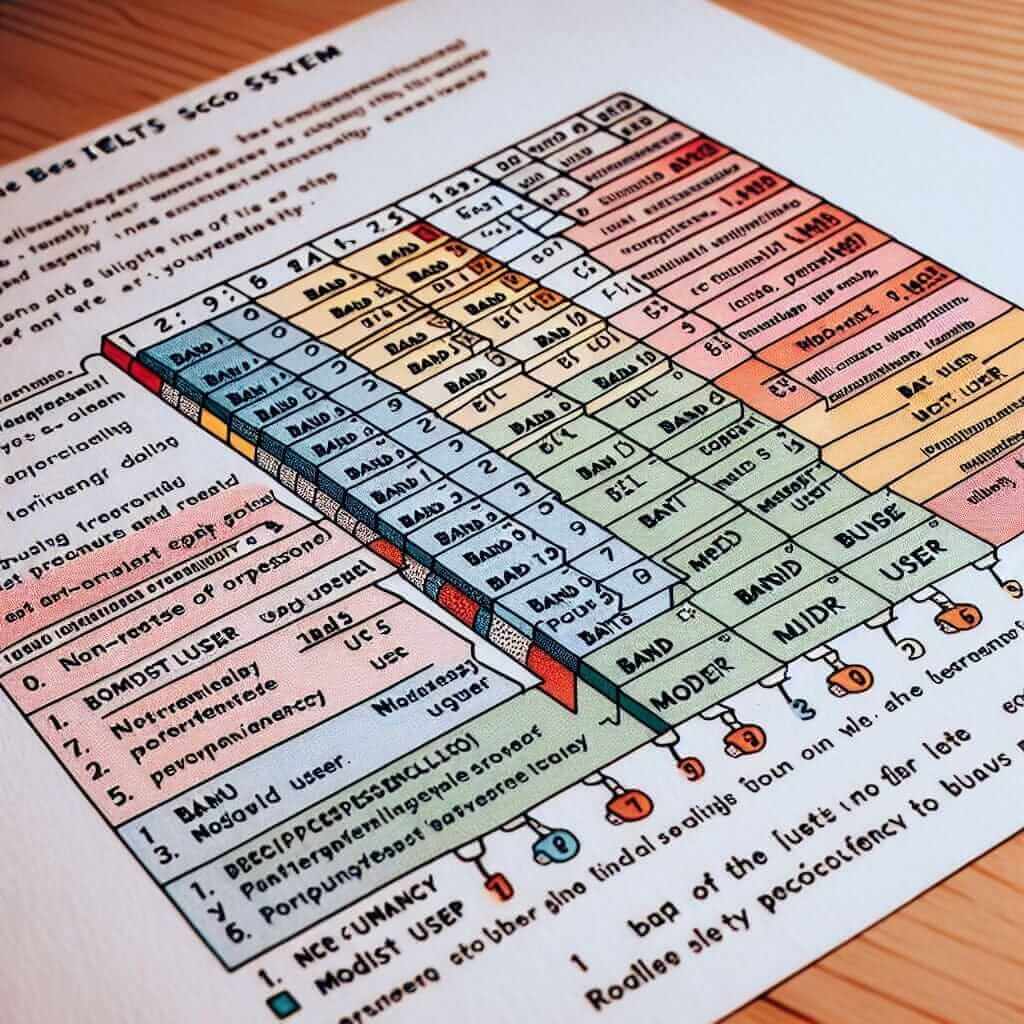As an IELTS instructor with over 20 years of experience, I understand the importance of demystifying the IELTS scoring system. Many students approach the test with a mix of excitement and apprehension, often wondering, “How are IELTS scores calculated?” This article aims to provide a clear and comprehensive answer to this common question, offering valuable insights for both test-takers and educators alike.
Understanding the IELTS Scoring System
Before delving into the specifics of score calculation, it’s crucial to understand the IELTS scoring bands. Unlike traditional pass/fail exams, the IELTS uses a 9-band scoring system to assess English language proficiency in a more nuanced way. Each band corresponds to a specific level of competency, ranging from non-user (Band 1) to expert user (Band 9).
What Do IELTS Scores Mean?
Your IELTS score, represented as a band score from 1 to 9, reflects your ability to understand and use English across four key skills:
- Listening: This section evaluates your ability to comprehend spoken English in various contexts.
- Reading: This section assesses your ability to understand written English in different formats.
- Writing: This section measures your ability to express yourself in writing with clarity and accuracy.
- Speaking: This section evaluates your ability to communicate effectively in spoken English.

How are IELTS Band Scores Determined?
Each of the four IELTS sections is weighted equally. Examiners use detailed assessment criteria to evaluate your performance in each skill area. These criteria focus on aspects such as:
- Fluency and Coherence: How well you can speak or write smoothly and logically.
- Lexical Resource: Your range and accuracy of vocabulary.
- Grammatical Range and Accuracy: Your ability to use a variety of grammatical structures correctly.
- Pronunciation: Your clarity and intelligibility when speaking.
Based on your performance, you receive a band score for each section. These individual scores are then averaged to calculate your overall band score.
Example:
Let’s say a candidate receives the following scores:
- Listening: 7.0
- Reading: 6.5
- Writing: 6.0
- Speaking: 7.5
The overall band score would be calculated by averaging these four scores, resulting in an overall score of 6.75. Since IELTS scores are reported in half-band increments, this candidate would receive an overall band score of 7.0.
Tips for Maximizing Your IELTS Score
- Practice Regularly: Consistent practice is key to success in any standardized test, and the IELTS is no exception.
- Familiarize Yourself with the Test Format: Understanding the structure and timings of each section is crucial for effective time management during the exam.
- Develop Strong Vocabulary and Grammar Skills: A wide-ranging vocabulary and a solid grasp of grammar are essential for excelling in all four sections.
- Focus on Coherence and Cohesion: Practice organizing your thoughts and ideas logically, both in speaking and writing.
- Seek Feedback from Experienced Instructors: Constructive feedback can help you identify areas for improvement and refine your exam technique.
Conclusion
Understanding how IELTS scores are calculated is a vital step towards achieving your desired band score. By familiarizing yourself with the scoring system, practicing diligently, and focusing on key skill areas, you can approach the IELTS with confidence and increase your chances of success. Remember, the IELTS is not just an exam; it’s a gateway to a world of opportunities!